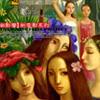Peking inside the classroom
Updated: 2008-03-11 09:54

When he was 8 years old, he remembers his own fascination with Peking Opera, something that eventually turned into a lifetime career. "It's our cultural heritage from our forefathers. Just like the Great Wall, Peking Opera will exist as long as China."
But not every Chinese is a fan. Xue Yan, a Langya Road Primary School music teacher in Nanjing, capital of Jiangsu province does not have the slightest interest in Peking Opera.
"It (Peking Opera) is something like antiques and should be sent to a museum," the 25-year-old woman frowns. She says her favorite entertainer is Jay Chou, a pop singer from Taiwan.
A poll by Sina.com, the country's top portal website, reveals that less than 30 percent of the 25,000 people surveyed support the ministry's plan.
Zhang Yiwu, a Peking University Chinese literature professor, suggests prudent research should have been carried out on the government plan before it was unveiled to the public.
About 400m from Ma's workplace is the Central Drama School, a dream academy for thousands of Chinese teens who desperately want to become another Zhang Yimou or Zhang Ziyi, both famous Chinese movie personalities.
Many of its students are former Peking Opera school graduates, such as Qin Hailu who won the best actress at the Hong Kong Film Awards in 2000 when she was 22.
Qin spent nine years studying Peking Opera before enrolling at the drama school in 1996. Fame came after four years of diligent study.
"You could hardly imagine how tortured I had been in the opera school, exactly the same as Farewell My Concubine, the film directed by Chen Kaige," Qin said on a TV talkshow program. She said singing Peking Opera arias was the last thing she wanted to do.
The old Chinese proverb "one minute on the stage and 10 years of practice off the stage" provides a vivid picture of how hard a Peking Opera performer works to attain applause.
Since the founding of New China in 1949, the country has started to reform old opera troupes. This later turned into the creation of various Peking Opera schools around the country.
For example, a 10-year-old child will spend at least eight years in the Nanjing Opera School before performing on stage. Chances are even slimmer he or she will be enrolled by drama schools, or do something that could lead to TV or movie roles. For some, graduation is not a desirable thing as it means they have no other skills outside of entertainment.
Fang Hua, a teacher at the Nanjing school, has attractive big eyes, a dulcet voice and delicate fingers - all the ideal physical assets needed for Peking Opera.
The 33-year-old graduated from the school 12 years ago and found a job in a troupe in which she spent 10 years. She says the audience is shrinking. "I can only stand on the stage two to three times a year, which is not what I want," Fang says. Instead, she chooses to teach students Peking Opera.
"I understand the ministry wants to help preserve this national cultural treasure, but how? A plan of 15 opera arias for students of the 200 schools around China is not the good way to do that."
Yang Qianwu, Beijing Dramatists Association vice-chairman, says all the 15 pieces selected are easy for children to sing. "Even the model Peking Opera arias developed in the 1960s reflected the highest achievement of reform in Peking Opera. He agrees with Fang that students should have more choice.
Zhang, the Peking University academic, echoes Yang's opinion and offered a proposed "art education package". His proposal includes Peking Opera, and also operas from other parts of China, or even from other countries, as all of these were man's cultural heritage.
It is much easier for those schools lacking Peking Opera teaching resources to handle, and Zhang thinks teacher Ma's class has provided an off-the-shelf solution.
"Why be so restricted by the forms, since the ultimate goal of all art education is to make people's lives beautiful and substantial."
(China Daily 03/11/2008 page18)
|
|
|
||
|
||
| Eating out:
Salmon satiation
Bars&Cafes: Hot DJs come Weekend&Holiday: MC Gee visits Beijing Shopping: By appointment only What's on: What's new |
|
||
| Eating out:
Nice is Oh-So-Nic
Bars&Cafes: The film and coffee bar Weekend&Holiday: Get ready to rock with Maroon 5 Shopping: Getting to the bottom What's on: When Marilyn meets China |



